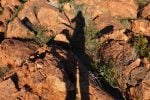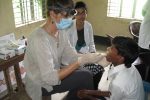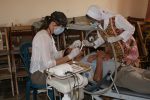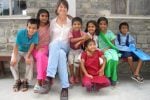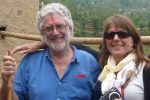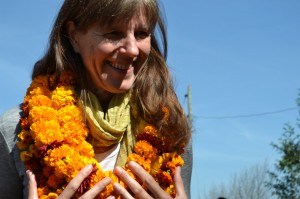 Exposure to work and life in remote Aboriginal communities in northern Australia as a dental student led Sandra Meihubers (TT), across the years, to work as a dentist servicing the needs of people in remote areas in Australia and in countries such as Nepal, Timor L’este and Bangladesh.
Exposure to work and life in remote Aboriginal communities in northern Australia as a dental student led Sandra Meihubers (TT), across the years, to work as a dentist servicing the needs of people in remote areas in Australia and in countries such as Nepal, Timor L’este and Bangladesh.
The experiences have been many: setting up dental programs in remote areas before the days of universal phone coverage (relying on two-way and CB radios), keeping portable dental equipment free from the fine dust of hundreds of kilometres of red dirt roads, working with Aboriginal health workers and local champions to establish and maintain community based programs, to name a few.
Sandra believes in the strength of locally based and managed programs and in Australia works mainly through Aboriginal Community Controlled Health Organisations (ACCHOs). These organisations provide a range of primary health care services that address the social and other factors that impact on the health of their communities.
A Churchill Fellowship in 2011 took Sandra to remote Indigenous communities in Brazil and Canada where it was possible to see the similarities experienced by poor and remote communities across regions and countries, and to learn from community based prevention programs in these countries.
Teeth and toilets – to some, an unlikely pairing…
From 2007 to 2015 Sandra was involved in village based sanitation programs in Nepal, which were run by her husband Paul Pholeros. The projects married school based dental programs in villages with the construction and installation of toilet waste systems in the same villages, as well as improving schools’ water and sanitation systems.
Since the earthquakes in Nepal in April-May 2015, the work focussed on village rebuilding, and providing dental care to people affected by the quakes.
After the sudden and tragic death of Paul in 2016 Sandra established the Paul Pholeros Foundation to carry on the essence of sanitation and skills improvement in Nepal.
In 2017 Sandra was appointed a Member of the Order of Australia (AM) for significant service to dentistry, to remote Indigenous communities, and through international humanitarian oral health care programs.


